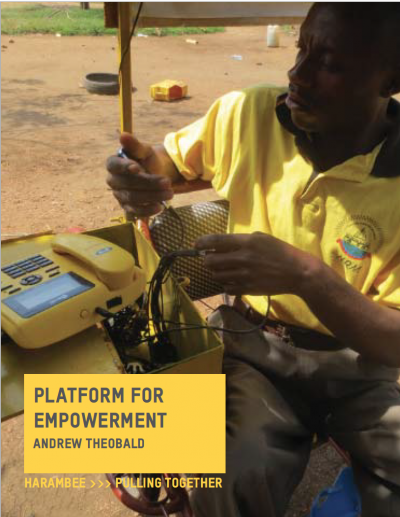While visiting Uganda, Andrew Theobald saw that many Ugandans owned and operated a range of innovative micro-businesses. When considering how to economically empower persons living with disabilities, he set out to create an opportunity for users of wheelchair-tricycles to operate micro-businesses of their own.
To do so, Andrew conceptualized the tricycle as its own business platform, and set out to combine a number of mobile technology centred micro-businesses that could be adapted for use on a tricycle. By incorporating the design of these micro-businesses with the design of the tricycle, the micro-businesses themselves were mobile and could be easily transported by the user.
In designing the micro-business attachment, Andrew addressed several design challenges. The user had to be able to reach everything themselves and be able to interact with customers for transactions. Andrew had to consider the security of the equipment, as well as ensure that the power generation was entirely self-sustaining and off-the-grid. He also designed something that worked symbiotically with the wheelchair, keeping in mind that mobility was the first and foremost priority.
The micro-business Andrew designed featured a mobile solar-charging station for electronic devices, a payphone, and a community information hub. This design had the added benefit of mobile technological infrastructure, ideal for extending technological services into rural communities. For instance, many rural Ugandans have cell phones, but no access to electricity. This micro-business provides a valuable service to the community and a source of income for the user.
